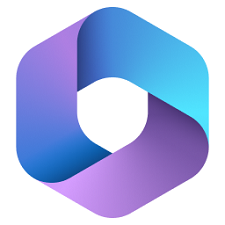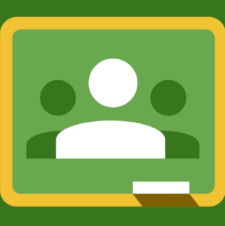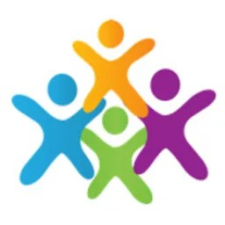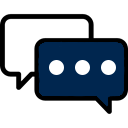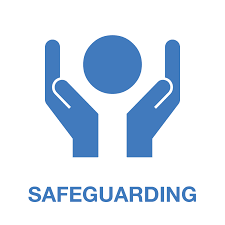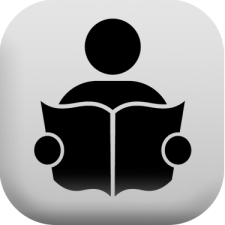Computer Science
Curriculum Intent
In Computer Science we aim to develop all learners to ensure they have the knowledge, skills and understanding to use computers effectively and understand the essential fundamentals of computer science, to allow them to succeed in all aspects of their education and future workplaces as active participants in a digital world. Learners are taught the fundamental principles of computer science and digital literacy; building skills and resilience, which are transferable across the curriculum. The curriculum had been developed to be challenging and rewarding, allowing students to develop computational thinking skills to decompose and solve real world problems. Learning opportunities’ will be provided to see the impact of computer science in the ever evolving digital world building curiosity and enthusiasm for the subject.
The courses taught within each Key Stage are outlined below. If you have any further queries, please email ict@southwolds.uk
Please note that this email address is not monitored daily but we will endeavour to reply within 3 working days.
KS3 Computer Science
Course Overview
Students have modules of Computer Science as part of the D&T rotations in Year 7, 8 and 9. Students are taught how to use the school network and their school email accounts to effectively use the resources available across the Academy.
In Year 7, students study 2 units:
Gaining Support for a Cause In this unit students develop their understanding of information technology and digital literacy. They will create a webpage post about a real-world cause that they would like to gain support for.
Programming in Scratch In this unit students will build confidence and knowledge of the key programming concepts, these are sequencing, variables, selection, and count-controlled iteration.
In Year 8 students study 3 units:
Computing Systems & Networks In this unit students will develop their understanding of computer and networks work. students will learn about programs and the operating system, and the physical components that store and execute these programs.
Introduction to Python Programming In this unit students will have an introduction to programming with Python, a text-based language
Data Representation In this unit students will enhance their knowledge of how numbers can be represented in binary and learn about how file sizes are calculated
In Year 9 students study 3 units:
Cybersecurity In this unit students will take an eye-opening journey of discovery about techniques used by cybercriminals to steal data, disrupt systems, and infiltrate networks.
Python programming and Physical Computing In this students unit apply and enhance their programming skills in a new engaging context: physical computing, using the BBC Micro:bit.
Data Representation In this unit students will discover how numbers can be represented in binary and be able to carry out simple operations on binary numbers for example, binary addition, and conversion between binary and decimal.
Students also have the opportunity to take part in computer science competitions – Bebras: Computational Thinking, CyberFirst (year 8 girls), CyberExplorers
How to help
Students keep their username for the entire time they are with us at the academy, it’s really important they can remember their username, email address and associated passwords.
Students and parents should have completed the Acceptable Computer & Internet Policy document, which ensures students understand how they are responsible for their use of the academy’s computer system.
Useful Links
KS4 Computer Science
Course Overview
Students can opt to study GCSE Computer Science in Year 10 & 11. There are 5 hours of lessons per fortnight. During the GCSE course students build on their knowledge and understanding they acquired during Key Stage 3.
Students are given the opportunity to demonstrate knowledge and understanding of the key concepts and principles of Computer Science, apply their knowledge and understanding of key concepts and principles of Computer Science, and analyse problems in computational terms: to make reasoned judgements; to design, program, evaluate and refine solutions.
The course is made up of:
Computer Systems [Paper 1]
- Systems architecture: Study how processors work. [Y10]
- Memory and Storage: Investigate computer memory and storage, including the representation of data. [Y10]
- Wired and wireless networks and network topologies, protocols and layers: Explore modern network layouts and how they function. [Y10]
- Network security: Build skills in the ever important realm of cyber security. [Y10]
- Systems software: Investigate how types of software are used within computer systems. [Y10]
- Moral, legal, cultural and environmental concerns: Discover a wider comprehension of how computers and computing affect ethical, legal, cultural and environmental issues. [Y11]
Computational Thinking, Algorithms and Programming [Paper 2]
- Algorithms: Study fundamental algorithms in computer science. [Y11]
- Programming techniques: Build a firm foundation in programming techniques. [Y10]
- Producing robust programs: Thoroughly test programs and make them resistant to misuse. [Y10]
- Boolean logic : Explore Boolean algebra (AND, OR, NOT). [Y10]
- Programming languages and IDEs [Y10]
Programming Skills [Y10 & Y11]
- Use programming skills to solve a variety of problems with increasing complexity
Students will understand and apply the fundamental principles and concepts of Computer Science, including abstraction, decomposition, logic, algorithms, and data representation. Be able to analyse problems in computational terms through practical experience of solving such problems, including designing, writing and debugging programs. Be able to think creatively, innovatively, analytically, logically and critically. Students will also gain an understanding the components that make up digital systems, and how they communicate with one another and with other systems, and understand the impacts of digital technology to the individual and to wider society. Students will also be able to apply mathematical skills relevant to Computer Science.
Students also have the opportunity to take part in computer science based competitions – Bebras: Computational Thinking, and the CyberDiscovery challenge [cyber security].
How to Help
- Students keep their username for the entire time they are with us at the Academy, it’s really important they can remember their username, email address and associated passwords.
- Students and parents should have completed the Acceptable Computer & Internet Policy document, which ensures students understand how they are responsible for their use of the Academy’s computer system.
- Revision – a little and often is key, revisiting previous topics, and using the resources on the links below
Useful Links
KS5 Computer Science
Course Overview
Students can opt to study A-Level Computer Science in Sixth Form. During the A-Level course students build on their knowledge and understanding they acquired during the GCSE.
Students are given the opportunity to demonstrate their knowledge and understanding of the principles and concepts of computer science, including abstraction, logic, algorithms and data representation. Students apply their knowledge and understanding of the principles and concepts of computer science including how to analyse problems in computational terms and design, program and evaluate computer systems that solve problems, making reasoned judgements about these and presenting their conclusions.
Students have the opportunity to study topics from GCSE in greater depth:
Computer Systems [Paper 1]
Characteristics of processors, IPOS devices [Y12]
Software and software development [Y12]
Exchanging data [Y12]
Data types, data structures and algorithms [Y12]
Legal, moral, cultural and ethical issues [Y12]
Algorithms and Programming [Paper 2]
Elements of Computational Thinking [Y12 &13]
Problem solving and programming [Y12 &13]
Algorithms to solve problems and standard algorithms [Y12 &13]
Students also have the opportunity to create their own personal programming project, where they analyse a problem, design, develop, test and evaluate a solution. [Y12 &13]
Students gain an ability to apply the fundamental principles and concepts of computer science including; abstraction, decomposition, logic, algorithms and data representation, and the ability to analyse problems in computational terms through practical experience of solving such problems including writing programs to do so. Students are challenged to think creatively, innovatively, analytically, logically and critically. Students are encouraged to see relationships between different aspects of computer science, apply mathematical skills relevant to computer science. Students are encouraged to articulate the individual (moral), social (ethical), legal and cultural opportunities and risks of digital technology.
Students also have the opportunity to take part in computer science based competitions – Bebras: Computational Thinking and CyberDiscovery challenge [cyber security].
How to Help
Students keep their username for the entire time they are with us at the Academy, it’s really important they can remember their username, email address and associated passwords.
Students and parents should have completed the Acceptable Computer & Internet Policy document, which ensures students understand how they are responsible for their use of the Academy’s computer system.
Revision – a little and often is key, revisiting previous topics, and using the resources on the links below

